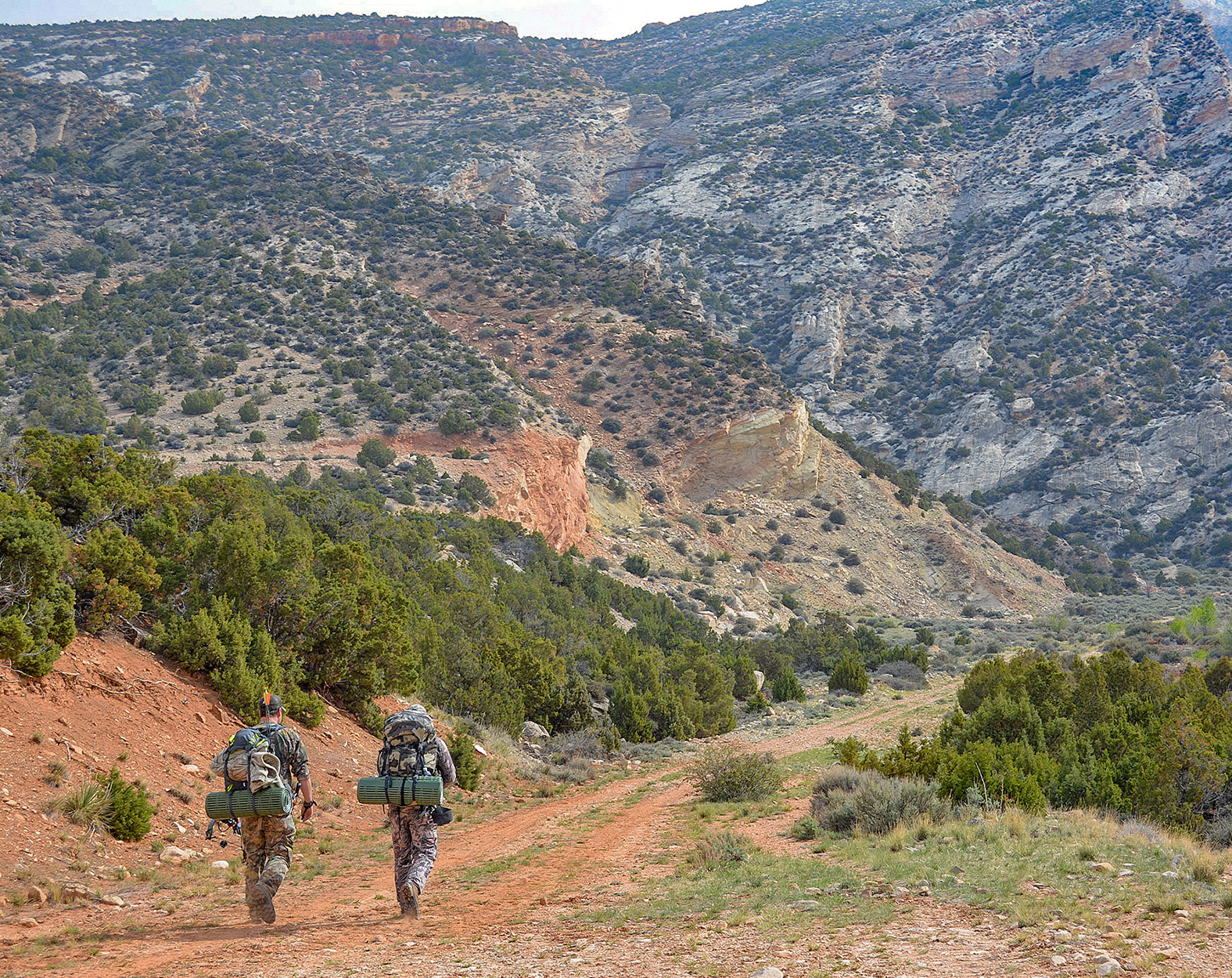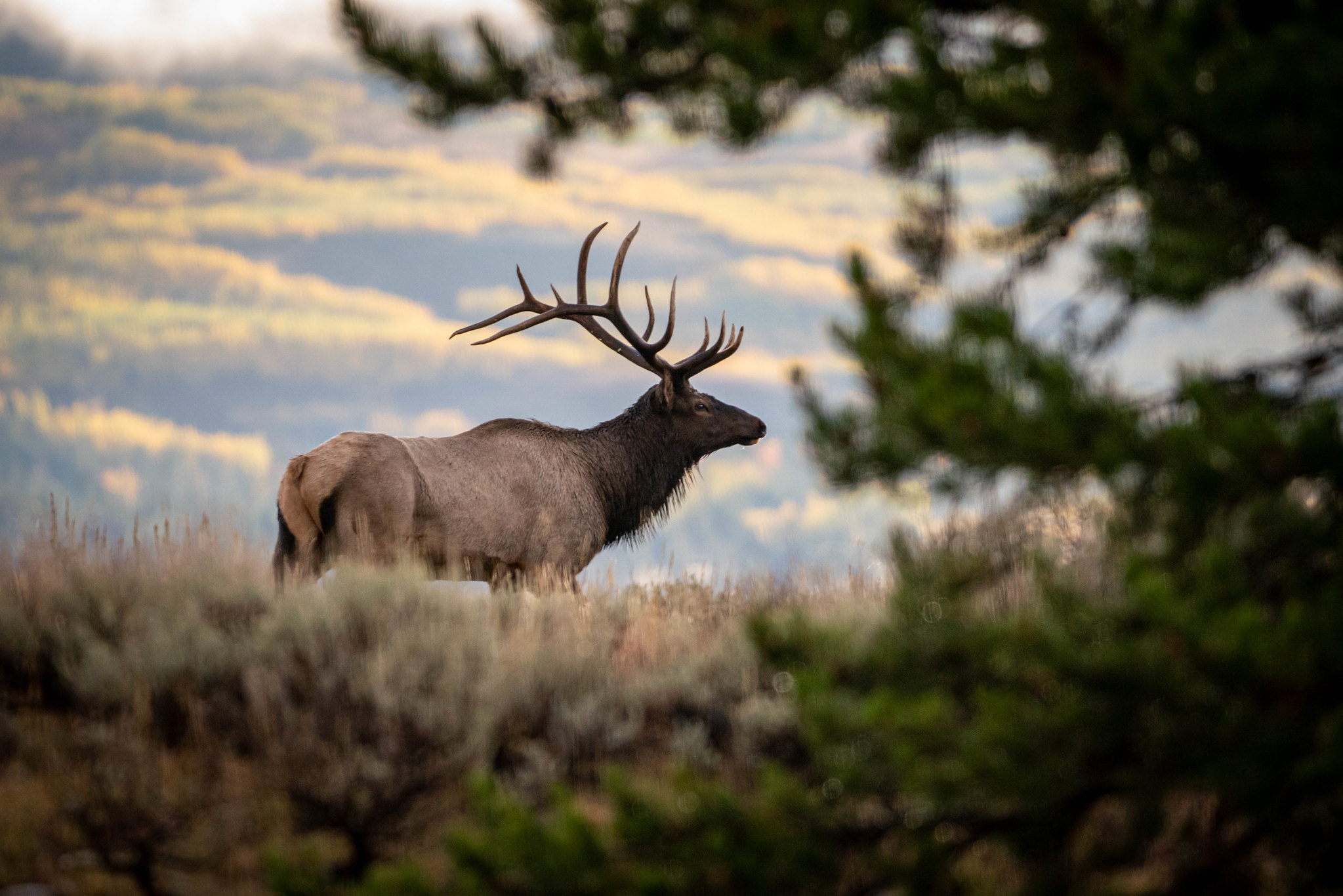Wyoming Senators Demand 50 Million Acres of Federal Land. It’s Part of a Coordinated Land-Grab by Western States

As Western lawmakers float a variety of bad ideas for transferring federal lands to states, a group of Wyoming state senators are making a particularly outrageous request of the federal government. On Thursday, those lawmakers pushed forward a resolution demanding Congress turn over all federal lands and mineral rights in the state of Wyoming. The only exception to their roughly 50-million-acre request would be Yellowstone National Park, which was established by the U.S. government before Wyoming gained statehood.
“All Americans should be very concerned about this proposal, because I’m sure other Western states would do the same thing if this was somehow allowed,” Earl DeGroot, one of the original supporters of Keep It Public Wyoming and the admin of Wyoming Sportsmen for Federal Lands, tells Outdoor Life. “I moved to Wyoming forty years ago to be near public land, and I stay here for the federal land. Land that belongs to all Americans, not just the state of Wyoming or a handful of legislators.”
Supporters of Senate Resolution 2 are claiming that the massive land transfer would put Wyoming on “equal footing” with other U.S. states. It passed the Agriculture, State and Public Lands and Water Resources Committee by a 4-1 vote Thursday. Sens. Tim French (R-Powell), Troy McKeown (R-Gillette), and Laura Pearson (R-Kemmerer) backed the measure alongside Sen. Bob Ide (R-Casper), the resolution’s lead sponsor. Sen. Barry Crago (R-Buffalo) was the only committee member who voted against it.
Crago did not immediately respond to a request for comment on why he voted against the resolution. But his main concerns, according to WyoFile, were related to legal complications around mineral rights, and the cost of grazing leases on federal land, which he worried could increase under state ownership. As we reported last month, BLM grazing leases could cost stockgrowers 500 to 1,000 percent more under state management.
Read Next: Don’t Let Politicians Convince You That Selling Public Lands Is the Solution to America’s Housing Affordability Crisis
Aside from disagreeing with the principles of SJ2, DeGroot says it’s a legal non-starter that makes poor economic sense. He says it would run afoul of the Wyoming Constitution, which states that the people of Wyoming disclaimed “all right and title to the unappropriated public land lying within [its] borders” upon receiving statehood. DeGroot also points to an independent study from 2019, which found that the State could not afford millions of acres of federal land, along with multiple surveys showing strong support among Westerners for policies that protect, expand, and conserve public lands.
“[A lot of] our legislators want these lands so they can get the minerals and support the state budget,” DeGroot says. “It’s about money. They don’t care about all that surface acreage that is so important to many of us as sportsmen.”
Western public-lands advocates and policy wonks, meanwhile, see SJ2 as part of a regional public-relations campaign to convince both Congress and the public that federal land transfers are in their best interest.
Devin O’Dea, Western policy and conservation manager for Backcountry Hunters and Anglers, calls SJ2 “a messaging vehicle” that promotes this ill-informed idea — which isn’t new, but seems to be having a moment as federal programs find themselves in the crosshairs of the Trump Administration.
“It’s not going to move the needle on policy. This is purely symbolic, and it’s similar to the Utah lawsuit, which I think most legal scholars will say didn’t have a snowball’s chance in hell from a legal footing. But it was a slick $20 million PR campaign,” O’Dea says. “A lot of this is just symbolic messaging … to try and sway public opinion and maybe to influence Congress.”
O’Dea says he’s more concerned by other public-lands bills being considered in Wyoming and other state legislatures that would legitimately chip away at the bedrock institution of our federal public lands system. One piece of legislation, which already passed the Wyoming House, would restrict the federal government from acquiring any additional federal land in Wyoming, and would make land transfers and other wildlife conservation measures more difficult to achieve. A similar bill introduced in the State Senate would ban private citizens in Wyoming from selling or transferring land to the federal government. This could block land swaps, one solution that’s been proposed to address public access issues in a checkerboarded West.
Read Next: If I Were America’s Public Lands Czar, Here’s How I’d Fix Access
“This is not unique to Wyoming, either,” says O’Dea, who’s seen similar bills introduced in Arizona this legislative session. “The rationale here is blocking the federal government from acquiring more land, but a lot of these programs [like the Land and Waters Conservation Fund] have been really beneficial for hunters and anglers … Federal lands are really the keystone of public hunting access. So seeing that tool in the toolbox get eliminated would be problematic, for sure.”
The fact that multiple legislators in different states are continuing their push for federal land transfers amid the current political environment should be a call to action for public-land hunters and anglers in the West, O’Dea adds.
“Beyond influencing legislation, what we’re really trying to do [at BHA] is encourage hunters and anglers from the grassroots level to tell their elected officials they don’t support this. We have to break through some of the noise and increase the chorus of voices that say, ‘This is a terrible idea.’”
Read the full article here







